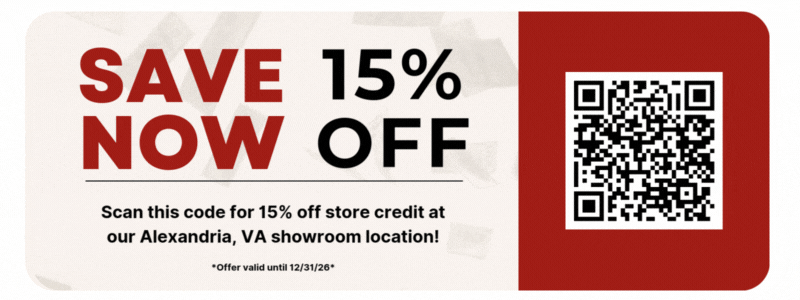
NSF Certified Equipment Is the Key to Food Safety Compliance
Every operator knows that food safety is non-negotiable. But compliance isn’t only about handling food correctly; it’s also about using equipment that won’t compromise sanitation or safety. NSF certification is the standard that helps kitchens prove their tools can withstand challenging foodservice demands while meeting regulatory requirements.
What NSF Certification Really Means
The National Sanitation Foundation (NSF) develops and enforces rigorous public health standards for food equipment. When a piece of equipment is NSF certified, it has undergone independent testing for factors such as cleanability, material safety, and performance under real-world conditions.
In short, NSF certification verifies that the design itself prevents contamination, think seamless surfaces, easy-to-clean joints, and materials that resist corrosion or bacterial growth. This level of validation gives operators confidence that their tools meet local health codes and pass inspections with less stress.
Why Food Safety Depends on Both Equipment and People
Even the most advanced kitchen setup won’t protect customers if staff aren’t adequately trained. That’s where ServeSafe comes in. While NSF certification focuses on equipment, ServeSafe training focuses on people and how employees handle, prepare, and serve food safely.
Together, they create a complete food safety system: certified equipment reduces risk at the hardware level, and trained staff maintain those standards in daily operations. When both are in sync, you’re not just checking boxes; you’re ensuring a seamless experience. You’re building trust with every meal served.
The Compliance Connection Across Industries
Food safety regulations affect every segment differently, but NSF standards remain universal.
- Restaurants: Health inspections hinge on cleanability. NSF-certified equipment shows you’ve invested in food-safe design.
- Healthcare facilities: Patients are vulnerable populations, so compliance expectations are higher. Using NSF-certified tools minimizes infection risk.
- K-12 schools: Many districts follow USDA and state nutrition program requirements that reference NSF standards.
- Corporate dining: As food programs expand, there is a need for consistency in compliance matters across multiple sites and vendors.
Regardless of the setting, NSF certification signifies professionalism and care, qualities that define trustworthy operators.
How to Tell If Equipment Is NSF Certified
Look for the NSF mark or a label that references compliance with NSF/ANSI standards. This mark can appear on data plates, packaging, or product literature. If you’re unsure, manufacturers and dealers can provide documentation proving certification.
NSF-certified equipment isn’t just a label. It’s proof that your kitchen tools meet strict food safety standards. Pairing certified equipment with trained staff keeps customers safe and operations compliant.
Working with a trusted equipment partner helps, too. Dealers familiar with foodservice compliance can guide you toward models that meet your needs and budget without compromising safety.
Protecting Your Brand Through Smart Choices
Foodborne illness doesn’t just cost money—it damages reputations. Equipment that meets NSF standards helps prevent problems before they start, ensuring smooth operations, lower risk, and easier health inspections. For operators managing multiple sites or those with a tight labor market, having one less compliance worry makes a real difference.
FAQs
Do I need NSF-certified equipment if I’m a small restaurant?
Yes. Health departments often require it, regardless of size. Certified equipment helps you stay compliant and simplifies future inspections.
Is NSF certification the same as UL or ETL?
No. UL and ETL focus on electrical safety, while NSF certification targets food safety and sanitation standards.
Do schools and healthcare facilities have different NSF requirements?
They often follow stricter compliance programs, but NSF certification remains a baseline expectation for equipment in contact with food.
Can equipment lose its NSF certification?
Not officially, but if it’s modified or damaged in a way that changes its design, it may no longer meet NSF standards.

